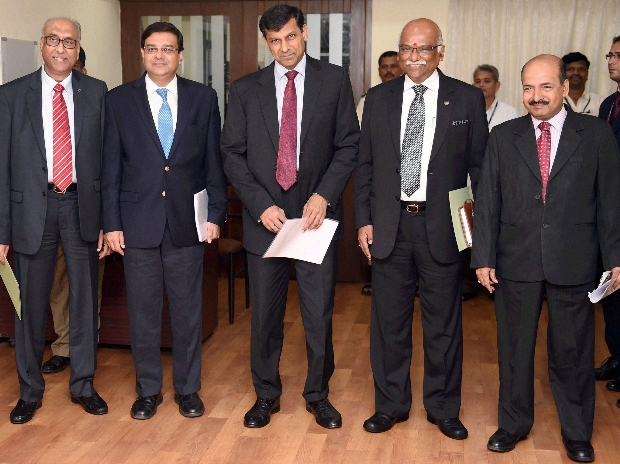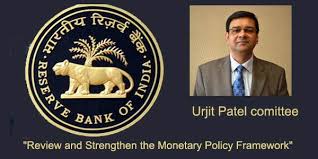

Urjit R. Patel (born 28 October 1963) is an Indian economist, consultant and banker, currently serving as Governor of the Reserve Bank of India (RBI). As the Deputy Governor of RBI, he looked after monetary policy, economic policy research, statistics and information management, deposit insurance, communication and Right to Information. On 20 August 2016, he was named as the governor of RBI to succeed Raghuram Rajan when the latter’s term expired in 4 September 2016.On 6 September 2016 he took charge as the Governor of Reserve Bank of India.
The appointment has been made based on the recommendation of the Financial Sector Regulatory Appointments Search Committee (FSRASC), headed by the Cabinet Secretary. The Committee undertook an extensive exercise to suggest a panel of names to the Appointments Committee of Cabinet (ACC).
Finance Minister Arun Jaitley held a discussion with Prime Minister Narendra Modi over the appointment of a new RBI Governor, a post that will fall vacant on September 4.
Early life and education
Patel obtained his Bachelor’s in Economics from the London School of Economics, M. Phil. degree from Oxford University in 1986. He received his doctorate in Economics from Yale University in 1990. He was at IMF India desk during the 1991–94 transition period. He was posted to IMF country mission in India 1992–95. He has also been a non-resident Senior Fellow at the Brookings Institution since 2009.
Professional career
After obtaining his PhD, Dr. Patel joined the International Monetary Fund (IMF) in 1990 worked on the USA, India, Bahamas and Myanmar desks at IMF till 1995. Thereafter he went on deputation the IMF to the Reserve Bank of India, where he played an advisory role in the development of the debt market, banking sector reforms, pension fund reforms, targeting of real exchange rate. After the two-year deputation with RBI, Patel became a Consultant to the Government of India in the Ministry of Finance, Department of Economic Affairs – a position he held from 1998 to 2001.
Between 2000 and 2004, Dr. Patel worked with several High Level Committees at both Central and State Government level, including Competition Commission, Task Force on Direct Taxes, Prime Minister’s Task Force on Infrastructure, Group of Ministers on Telecom Matters, Advisory Committee on Research Projects and Market Studies, Committee on Civil Aviation Reforms, Expert Group on State Electricity Boards and High Level Expert Group on Civil & Defence Services Pension System.
On 11 January 2013, Urjit Patel was appointed as Deputy Governor of RBI for a period of three years.He took over charge of the vital Monetary Policy Department, succeeding Subir Gokarn to the post.
On 20 August 2016, he was appointed as the 24th governor of Reserve Bank Of India(RBI) succeeding Raghuram Rajan.
Important positions
- Advisor, Boston Consulting Group
- President (Business Development), Reliance Industries
- Executive Director, Infrastructure Development Finance Company (1997-2006)
- Member, Integrated Energy Policy Committee, Government of India (2004-2006)
- Non-Executive Director, Gujarat State Petroleum Corporation
- Non-Executive Director, Multi Commodity Exchange of India Limited
- Deputy Governor, Reserve Bank of India.
- Governor, Reserve Bank of India (from 4 September 2016)
 Urjit Patel committee
Urjit Patel committee
Urjit Patel Committee is one of the committees formed by RBI to revise and strengthen monetary policy frame work in India.
Suggestions made by the committee:
1. Control Consumer Price Index(CPI)
Monetary policy till now in India always concentrated on controlling WPI (Wholesale Price Index). But WPI is not the right indicator as it does not include the entire nation. It just covers only 60% of the nation.
2. Control Inflation
Monetary policy has been used in the past has been used for multiple targets. But this committee suggested to concentrate on only one target at a time, the first of them being inflation.
3. Define a target:
All these days they just mention in air that we want to increase GDP(gross domestic product), reduce inflation, but a target has not been mentioned. Now the target for inflation has been mentioned as 4% with allowace of + or – 2%.
4. Accountability:
It is a decision taken by a group of members and not a single member. They decide how much should the policy rate be increased or decreased. RBI will be held accountable and government will not interfere in it.
